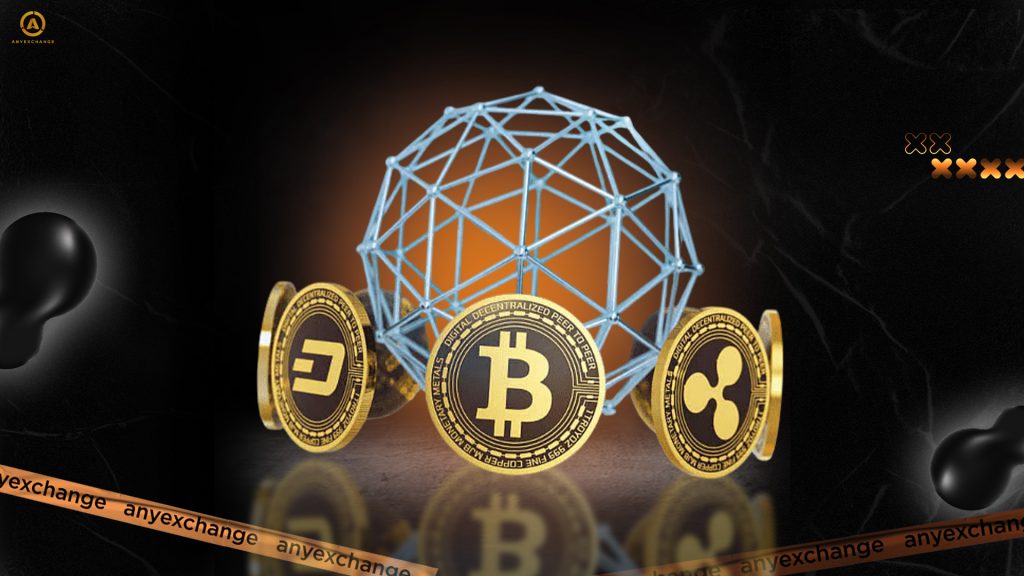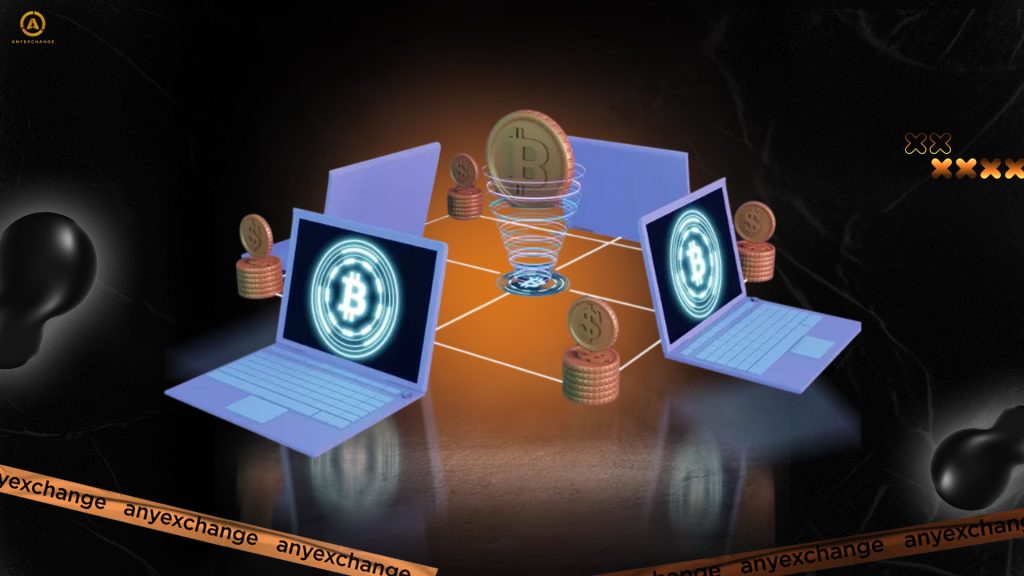
Geopolitical factors have a significant impact on financial markets, and the cryptocurrency sector is no exception. Changes in international relations, sanctions, armed conflicts and political instability lead to fluctuations in the prices of digital assets. Unlike traditional financial instruments, cryptocurrencies are often perceived as an alternative way to preserve capital in times of crisis, as well as a tool to circumvent sanctions restrictions.
The purpose of this article is to analyze the impact of politics on cryptocurrencies, review the key geopolitical events shaping market trends, and identify the key risks and opportunities associated with political changes around the world.
Key geopolitical factors influencing cryptocurrencies

Experts highlight several key aspects influencing cryptocurrencies through international relations.
Different approaches in regulation
One of the most important factors is the regulation of cryptocurrencies around the world. Government agencies in different countries have different approaches to digital assets: some legalize them and integrate them into the economy, while others impose strict bans.
- For example, China has imposed strict restrictions on mining and cryptocurrency transactions, which led to a sharp decline in the hash rate of the bitcoin network and migration of mining companies. Despite official restrictions on cryptocurrencies, China continues to play a key role in the industry. Yes, government bans on cryptocurrencies in China have led to massive closures of mining operations, but a large portion of miners have simply changed jurisdictions, moving to other regions such as Kazakhstan and the US. China’s influence on the cryptocurrency market also remains significant, as many Chinese investors and traders continue to participate in trading through offshore platforms. In addition, China is actively developing the digital yuan, which has the potential to become an alternative to stablecoins and impact the global economy. In other words, China’s interaction with the cryptocurrency market remains complex, but its influence cannot be ignored.
- The U.S., on the other hand, is working to create a transparent and regulated environment for digital assets. U.S. cryptocurrency policy includes drafting legislation to combat the illegal use of cryptocurrencies, consumer protection, and tax accountability. However, overly stringent regulatory measures can make the market less attractive to investors.
U.S. regulators, such as the Securities and Exchange Commission (SEC), have been actively intervening in the crypto industry, filing numerous lawsuits against major crypto companies. In 2023, the SEC filed lawsuits against Binance and Coinbase, accusing them of violating securities laws, causing bitcoin to plummet. The impact of political news on bitcoin in the U.S. can also be seen through SEC decisions, which are often influenced by political pressure. For example, the approval of a spot bitcoin ETF in early 2024 came amid heightened debate about cryptocurrency regulation in the U.S. Congress and after a number of cryptocurrency companies won court victories against the SEC.
In addition, the Federal Reserve (Fed) has a huge impact on the crypto market. Decisions to raise or lower interest rates change the attractiveness of cryptocurrencies relative to traditional assets. During periods of tight monetary policy, investors tend to move out of risky assets, causing bitcoin prices to fall.
- The European uniоn is also actively developing a regulatory framework for digital assets. The Markets in Crypto-Assets (MiCA) Regulation, which will be adopted in 2023, aims to create a single set of regulations for cryptocurrencies across the EU, making the market more predictable for investors. Cryptocurrencies and the global economy in the EU context are seen as part of the digital transformation of the financial systеm, but strict licensing requirements for crypto companies could slow innovation.
- On the territory of the aggressor country russia, the regulation of cryptocurrencies has a dual character: on the one hand, the authorities prohibit the use of cryptocurrencies as a means of payment, on the other hand, they are trying to find ways to use them for international settlements to circumvent sanctions.
Sanctions and International Restrictions
Sanctions and the cryptocurrency market are closely linked, as crypto assets are often used to circumvent international restrictions. Following russia’s full-scale invasion of Ukraine, Western countries imposed sanctions that were unprecedented in number and scope, affecting the banking sector, trade, and assets of individuals in the aggressor country. In response, russia began actively seeking ways to circumvent financial restrictions through cryptocurrencies.
However, the impact of sanctions on cryptocurrencies has been mixed: on the one hand, demand for digital assets in sanctioned countries is growing, while on the other, major crypto exchanges are blocking users from russia and other rogue states for fear of secondary sanctions. Thus, sanctions regulation continues to put pressure on the crypto market.
Geopolitical tensions and conflicts
Geopolitical instability and cryptocurrencies are closely linked, as digital assets are seen as an alternative way to store value in times of military conflict and political upheaval. An example is the russian invasion of Ukraine: in the midst of instability, the bitcoin exchange rate experienced sharp fluctuations and the demand for USDT and USDC stablecoins in Ukraine increased significantly.
The impact of the conflicts on cryptocurrency has also been seen in the growing use of digital assets for humanitarian aid. Ukrainian authorities are actively accepting donations in cryptocurrencies, highlighting their role in global crises.
In addition to the war in Ukraine, other conflicts such as armed clashes in the Middle East and crises in South America are also affecting the market. The higher the level of uncertainty in the world, the higher the demand for alternative financial instruments, including cryptocurrencies.
International organizations and their role in the cryptocurrency market

Organizations such as the International Monetary Fund (IMF), the Financial Action Task Force (FATF), and the World Bank are creating global standards to regulate cryptocurrencies. The influence of international organizations on the crypto market can be seen in recommendations aimed at combating terrorist financing and illegal transactions.
For example, the FATF requires cryptocurrency exchanges to comply with know-your-customer (KYC) and anti-money laundering (AML) regulations, which limit the anonymity of cryptocurrency transactions. International initiatives could further tighten regulation in the future, changing the landscape of the crypto industry.
The IMF has advocated for a global regulatory framework for cryptocurrencies, urging governments to take coordinated action. In its reports, the Fund has repeatedly highlighted the potential risks of cryptocurrencies to financial stability, particularly in developing countries. In addition, the IMF is actively involved in the development of central bank digital currencies (CBDCs) as an alternative to cryptocurrencies.
The World Bank, for its part, is also focusing on the impact of cryptocurrencies on the global economy, particularly in the context of financial inclusion. In a number of countries with poor banking infrastructure, digital assets have become an important tool for value preservation, remittances and financial inclusion. However, the Bank warns of potential threats related to volatility and the lack of robust investor protection mechanisms.
Examples of the impact of specific geopolitical events on the crypto market
- Brexit. The impact of Brexit on cryptocurrencies manifested itself in increased volatility in the markets, as the UK’s exit from the EU created economic uncertainty. Bitcoin rose significantly in the first few months after the referendum as investors sought protective assets.
- US-China trade war. Trade conflicts and cryptocurrencies are linked by the instability of global markets. During the period of active confrontation between the US and China, many investors turned to bitcoin as an alternative to traditional assets. Political statements and sanctions from both countries caused a spike in volatility in traditional markets, forcing investors to look for safe-haven assets. For example, in 2019, amid the imposition of U.S. tariffs on Chinese goods, BTC rose more than 30% in a matter of weeks. It was one of the clearest demonstrations of the impact of geopolitics on the bitcoin price. In 2021, when China banned cryptocurrency transactions and mining, the market experienced a significant drop but then quickly recovered thanks to increased interest from U.S. and European investors.
- COVID-19 Pandemic. The pandemic crisis led to unprecedented growth in cryptocurrencies as central banks began issuing additional fiat currencies, triggering higher inflation and increasing interest in decentralized assets. In 2020, the U.S. Federal Reserve and the European Central Bank introduced massive quantitative easing programs, increasing liquidity in the markets. This caused bitcoin to rise from $5,000 in March 2020 to over $60,000 in April 2021. At the same time, interest grew in stablecoins such as USDT and USDC, which began to be used as alternative instruments to preserve value in volatile environments. The impact of the crises on the crypto market here manifested itself in bitcoin’s rise to new all-time highs.
- russia’s aggression against Ukraine. russia’s full-scale invasion of Ukraine was one of the key events that affected the crypto market. Ukrainians began actively using cryptocurrencies for humanitarian purposes and to protect their assets, while sanctions against russia restricted its access to global financial systems. The impact of economic wars on cryptocurrencies manifested itself in the form of a search for alternative payment methods.
Prospects and predictions
Cryptocurrencies and globalization are increasingly intertwined. In the future, political instability, regulatory changes and innovations in blockchain technology will continue to drive the market. Possible scenarios inсlude a continuation of russia’s war in Ukraine, which could increase sanctions pressure and drive demand for decentralized assets and financial instruments. Prolonged conflict in the Middle East could lead to higher oil prices and inflationary pressures, which in turn could increase the popularity of cryptocurrencies as a hedge asset. An escalating trade war between the U.S. and China could lead to changes in global supply chains, promoting cryptocurrency payments in international trade.
Conclusion
The impact of geopolitical factors on the crypto market remains significant. Investors should consider political risk when making decisions, as well as keep an eye on regulatory changes and global trends.
Thank you for your attention. Invest safely and profitably!
AnyExchange is a cryptocurrency exchanger that allows you to convert the most popular digital assets at the best exchange rates. Our company has been operating successfully for more than five years and has high positions in ratings. We cooperate with the most popular international payment systems, through our platform you can make transactions with bank cards and cash. Fast and anonymous money transfers worldwide are available on our website.





